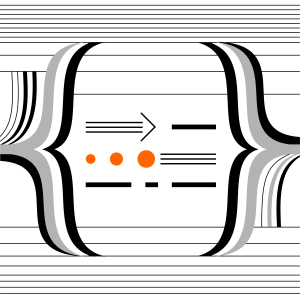Inside the Machine: The World of Casino Game Development
The flashing lights and captivating sounds of a casino floor are the result of intense, highly specialized work in the world of game development. Creating the software that powers slot machines and other electronic gaming terminals is a unique discipline that blends creative artistry with rigorous technical precision and stringent regulatory compliance. This article delves into the core components of this industry: the programming languages used, the key players, and the strict requirements they must meet.
The Programming Languages Powering the Games
While a single casino game is a complex assembly of different technologies, a few programming languages form the backbone of development for both land-based machines and their online counterparts.
-
C++: Still a powerhouse for performance-critical applications, C++ is frequently used for developing the core engine of physical slot machines. Its ability to manage memory and hardware resources directly is crucial for creating fast, responsive, and secure games that can run for years without fail on dedicated hardware.
-
C# and the Unity Engine: C# has become hugely popular, largely due to its use with the Unity game engine. Unity provides a comprehensive framework for creating rich 2D and 3D graphics, animations, and sophisticated game logic. Its cross-platform capabilities allow developers to create games that can be deployed on a variety of hardware, from physical cabinets to mobile and web platforms, making it an incredibly efficient choice.
-
HTML5 and JavaScript: For the online casino world, HTML5 and JavaScript are dominant. This combination allows for the creation of games that can run directly in a web browser on any device (desktop, tablet, or phone) without requiring special plugins. This accessibility is key to the modern iGaming market.
-
Python: While less common for front-end game graphics, Python is often used on the server side for backend logic, player data management, and developing tools for game testing and analysis.
Top-Tier Developers in the Casino Gaming Space
The casino game development market is highly competitive, but a few names consistently stand out due to their innovation, quality, and vast game portfolios.
1. International Game Technology (IGT) A true giant with roots in the physical slot machine era, IGT is one of the most recognized names on any casino floor. Originally founded in 1975, they are pioneers in the industry.
-
Specialty: IGT excels at creating iconic branded slot machines based on popular movies, TV shows, and personalities, such as Wheel of Fortune® and Cleopatra®. They have a massive presence in both land-based and online casinos, offering a seamless omnichannel experience.
2. Aristocrat Leisure Limited An Australian powerhouse, Aristocrat is another dominant force in the world of physical slot machines. Their games are known for their engaging mechanics and distinctive art styles.
-
Specialty: Aristocrat is famous for its innovative reel power and multi-win formats, such as the Wonder 4 series. They are also the creators of globally popular games like Buffalo™ and Lightning Link™, which have become staples in casinos worldwide.
3. Evolution (incorporating NetEnt and others) While originally famous for revolutionizing the live dealer casino space, Evolution has become a slot machine behemoth through strategic acquisitions of top-tier studios like NetEnt and Red Tiger.
-
Specialty: Through its acquired brands like NetEnt, Evolution is known for producing visually stunning, graphically advanced video slots with innovative bonus features and high production values. Games like Starburst™ and Gonzo's Quest™ redefined player expectations for online slots and are popular on digital gaming terminals.
The Strict Requirements of Casino Game Development
Developing games for the casino industry is far more demanding than creating typical video games. The process is governed by strict rules to ensure fairness, security, and player protection.
-
Regulatory Licensing and Certification: Before a game can be offered in a casino, both the game itself and the development company must be licensed by the gaming commission of that specific jurisdiction (e.g., the Nevada Gaming Commission, the UK Gambling Commission). This is a rigorous and expensive process involving deep background checks on the company and its key employees.
-
Random Number Generator (RNG) Integrity: The core of any slot machine is its RNG, an algorithm that produces completely random and unpredictable outcomes. This software must be independently tested and certified by approved third-party labs (like GLI or BMM Testlabs). The code is analyzed to ensure that it is truly random, cannot be manipulated, and meets the jurisdiction's specific payout percentage (RTP - Return to Player) requirements.
-
Code Security and Robustness: The game's code must be incredibly secure to prevent any form of tampering or hacking. It must be stable and robust enough to run without errors for extended periods. Game logs must be meticulous, recording every spin, wager, and outcome for auditing purposes. Any updates or patches to the software must typically go through a re-certification process.
-
Adherence to Responsible Gaming: Developers must build in features that support responsible gaming. This includes clear displays of the player's balance, wager amount, and winnings, as well as providing easy access to game rules, pay tables, and information about the odds.
In conclusion, creating the games that populate a casino floor is a high-stakes endeavor that demands technical excellence, creative vision, and an unwavering commitment to regulatory compliance and integrity.





